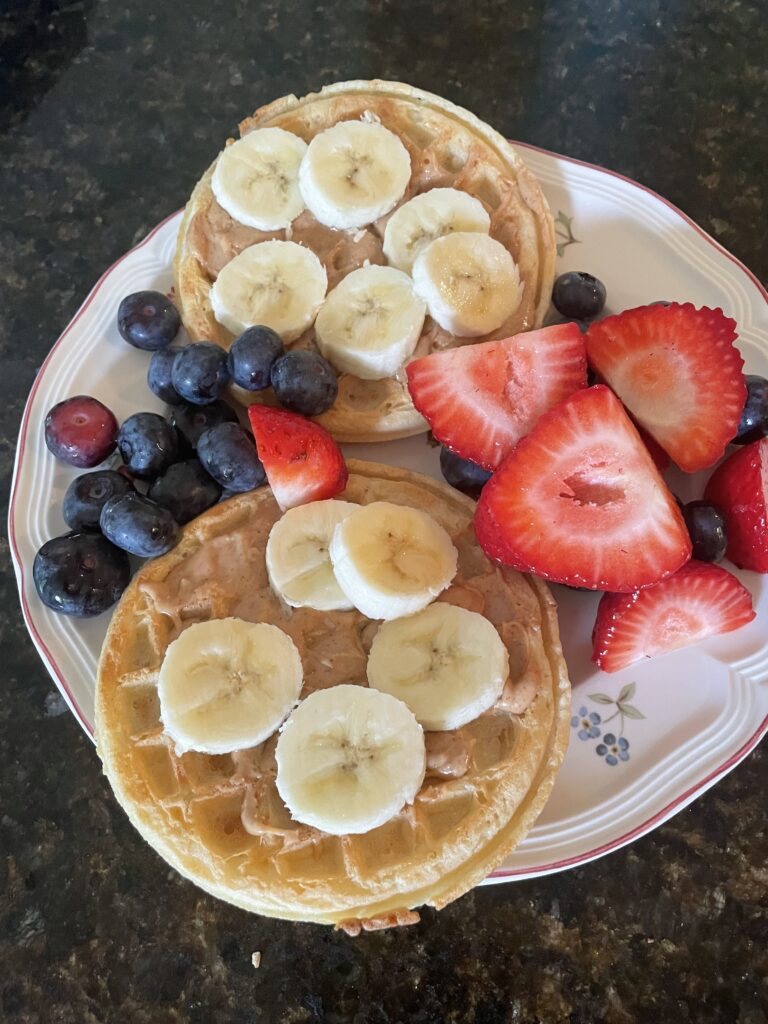Amy Stephens
MS, RDN, CSSD, CEDS
Licensed dietitian
specializing in sports nutrition
and eating disorders
MS, RDN, CSSD, CEDS
Licensed dietitian
specializing in sports nutrition
and eating disorders
Whether it’s your first half marathon or your 10th: Whether you’re aiming for a PR or running for fun, proper nutrition is key to sustaining energy, optimizing performance, and ensuring good recovery. This guide covers everything you need to know about fueling before, during, and after your race, along with common mistakes to avoid. While general guidelines can help all runners, fueling is individual, and what works for one person might not work for you. It’s important to experiment to see what feels best for you.
Most race plans start about 12 weeks out, allowing time for your body to adapt to increased mileage. Use your training period to practice fueling strategies and determine what works best for you.
During exercise, your body relies on glycogen, the stored form of carbohydrate, as a primary fuel source. After glycogen stores are depleted, your body requires additional carbohydrate fuel from gels. Here’s why gels are essential:

Fueling for Long Runs: overview
Early in training, test different foods to find out what your body tolerates best. Use this time in practice to determine both which foods feel best for race day and when to consume them to avoid stomach discomfort. More time before a run will allow your body to digest more food, but easily digestible carbs low in fat and fiber will provide the best fuel with the lowest risk of discomfort. If you are hesitant to fuel pre-run, speak with a sports dietitian for a customized approach. You can learn strategies to improve your gastrointestinal (GI) tolerance.
Best Foods to Eat Before a Run
3-4 hours before: Meal – Bagel with peanut butter, honey, banana, and fluids.
1-2 hours before: Snack – Pretzels with peanut butter or toast with honey and fluids.
<30 minutes before: Quick carbs – Gels, Honey Stinger Waffle, or sports drinks.
Fueling During a Run

Hydration
Caffeine & Performance
Caffeine can improve sports performance by increasing alertness and reducing fatigue. Some studies have also shown that caffeine can increase fat utilization and spare glycogen during endurance events.
Tips to Prevent GI Issues

Refueling After Long Runs
Pre-Race Nutrition
During the taper phase, maintain normal eating habits but increase carbohydrates 3-4 days before race day to 60-75% of daily calories.

Race Day Fueling
Pre-Race Breakfast (2-3 Hours Before)
During the Race (Miles 4-10)
Post-Race Recovery
Final Tips for Half Marathon Nutrition
✔ Train your gut – Practice your fueling strategy during long runs to minimize GI issues.
✔ Stay consistent – Stick with what you know on race day; avoid experimenting.
✔ Listen to your body – Adjust fueling based on energy levels, digestion, and hydration needs.
Fuel well, run strong, and enjoy the race!
Licensed dietiTian
specializing in sports nutrition and eating disorders
© Amy Stephens Nutrition
SITE BY 744 CREATIVE